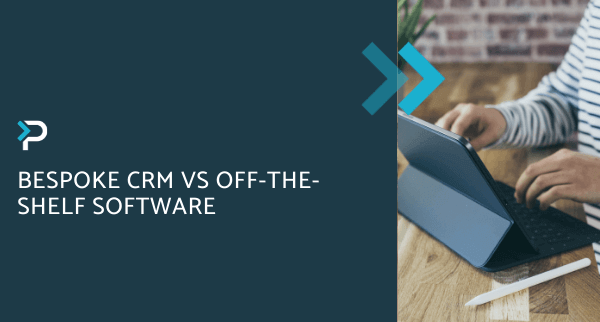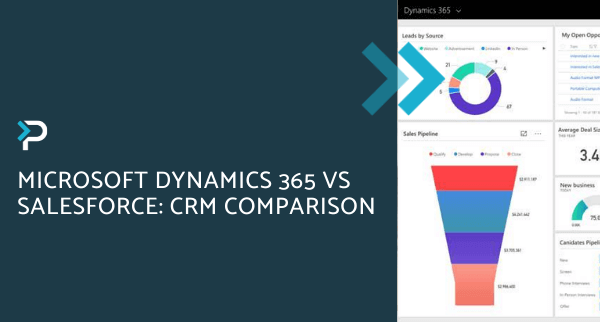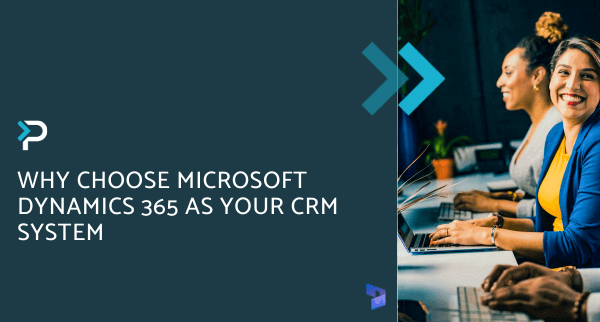The CRM Glossary – All the CRM Terminology You Need to Know!
The CRM Glossary – All the CRM Terminology You Need to Know!
August 5th, 2024
9 min read
The benefits of CRM software are significant, however, understanding all the terminology associated with these solutions can be difficult. Working with CRM systems daily, we have collected the most common CRM terms and have provided clear definitions for each of these terms, helping you navigate and understand CRMs to their fullest degree.
The A-Z CRM Glossary
- 360-Degree Customer View
- Account
- Activities
- Analytics
- API
- Artificial Intelligence (AI)
- Bespoke CRM
- Business Intelligence (BI)
- Campaign
- Campaign Management
- Cases
- Cloud-Based CRM
- Connector
- Contact
- Contact Database
- Custom Code
- Customer Data
- Customer Journey
- Customer Relationship Management (CRM)
- Dashboard
- Data Protection
- Digital Transformation
- Export
- Field
- Forecast
- Go-Live
- Import
- Lead
- Marketing Automation
- Natural Language Processing
- Off-the-Shelf
- On-Premises
- Opportunity
- Pipeline
- Relationship Management
- Sandbox
- Scalability
- Segmentation
- Social Integration
- Software as a Service (SaaS)
- Third-Party Integration
- Trigger
- Unified Interface (UI)
- User Interface
- User Permissions
- Workflow
360-Degree Customer View
A comprehensive view that consolidates customer data from various touch points a customer may currently have with your business, including contact details, marketing campaigns, opportunities, purchasing history and all other key points about the customer relationship.
Account
An account typically refers to a record that represents an organisation, or sometimes an individual with whom a company has a relationship with. Accounts include a variety of data, such as company name, addresses, phone numbers, associated contacts, email addresses, etc.
Activities
Activities within a CRM refer to the history of actions related to a record, these can include phone calls, emails, meetings and other completed or scheduled tasks
Analytics
This is data that gives your business enhanced insights to help you make faster and more informed decisions. Analytics can include trends, behavioural data, marketing engagement, sales analytics, pipeline insights, etc.
API
An API (Application Programming Interface) is a set of rules and tools that allows the customisation or integration of other applications with the CRM system.
Artificial Intelligence (AI)
AI stands for Artificial Intelligence and is increasingly being integrated within CRM solutions to help users increase their efficiency. Features may include automated email compositions, account summaries, or smart account insights.
Bespoke CRM
A Bespoke CRM is a custom-built CRM that is tailored to meet the specific needs of your organisation.
Business Intelligence
Business intelligence (BI) combines business analytics, data mining, and dashboards to provide executives, managers, and analysts with easy-to-understand insights that help them make more informed business decisions.
Find out more about Microsoft’s Business Intelligence Tool, Power BI.
Campaign
A campaign is a series of marketing efforts, such as:
- Email marketing
- Social media marketing
- Print/Online ads
- Direct mail
- Events
- Product launches
The aim of these is to increase awareness of your brand, products and/or services.
Campaign Management
Campaign Management involves the planning, creation, launch, monitoring, and analysis of marketing campaigns aimed at achieving specific goals.
Cases
Cases are records of customer issues that have been raised either by the customer, or their sales representative, that need to be addressed.
Cloud-Based CRM
A cloud-based CRM requires no hardware, can be deployed remotely and can be accessed via the internet from a web browser or mobile app.
Are you a Dynamics 365 user? Find out why you should migrate from D365 On-Premises to the Cloud.
Connector
Software that connects two platforms.
Contact
A contact usually represents a person, such as a customer, prospect, supplier or colleague. This record stores their name, phone number, email, address, business role and other relevant information.
Contact Database
The term ‘contact database’ refers to the list of contacts that are stored within your CRM, this functionality is a key capability of any CRM.
Custom Code
In some cases, CRM solutions can be customised using custom code making it possible to tweak the functionality, naming, fields and more.
Customer Data
Customer data refers to all information that your organisation has discovered regarding each customer, this is stored within an easy-to-reach place within the CRM. Information here may include, names, contact info, customer preferences, purchases, opportunities and more.
Customer Journey
The customer journey in a CRM refers to the series of interactions and experiences a customer has with a company, from initial contact through to purchase and beyond. It encompasses all touchpoints and stages, providing insights into customer behaviour and helping to optimise engagement and satisfaction throughout their lifecycle.
Customer Relationship Management (CRM)
A Customer Relationship Management (CRM) System is designed to manage and maintain customer relationships, track engagements and sales, and deliver actionable data. It all comes down to improving customer relationships and improving profitability.
Are you currently using spreadsheets but want to move to a CRM system? – Read our blog on reasons to move from spreadsheets to a CRM systems.
Dashboard
A Dashboard within a CRM is the home or landing page of your CRM. It typically displays key information and navigation menus, such as KPIs or other important figures. More often than not, organisations can decide what is being displayed on the dashboard.
Data Protection
Data Protection in CRM refers to the practices and measures implemented to safeguard customer data within a CRM system. This includes ensuring data confidentiality, integrity, and availability by protecting against unauthorized access, data breaches, and misuse, while also complying with relevant privacy laws and regulations.
Digital Transformation
Digital transformation is a term that is widely used when referring to the transition from legacy systems and more manual processes, to modern technology and digital processes for an organisation.
Export
Exporting data means that you are converting it to a certain file format to be used within a different software, or shared with other employees.
Field
A field refers to areas in a CRM where users enter information. Standard fields include first name, last name, phone number, email address, company and job title. Bespoke CRM solutions will enable the addition of custom fields that are unique to your business.
Forecast
A forecast is a report or dashboard containing projections regarding your sales pipeline. CRM systems help deliver automated forecasts that help drive sales and boost business growth.
Go-Live
At its core, a go-live indicates the point at which your system launches, while also involving last activities such as, configuring the live system, and data migration.
Import
When you import data into a CRM you are loading data into it. The most common use of this feature it to import new contacts, and email addresses from spreadsheets.
Lead
This is a potential customer in the first stage of the sales pipeline. Potential lead sources include inbound marketing efforts, organing marketing, other campaigns, referrals, etc. Confused about the difference between a lead and an opportunity have a read of our blog.
Marketing Automation
To put it simply, marketing automation software streamlines, automates and schedules marketing tasks within an organisation, from lead-nurturing to campaign planning. As a result, businesses save time, have more sales-ready leads and increase revenue.
Natural Language Processing
Natural language processing is an area of artificial intelligence (AI) processes and refers to computers’ ability to dissect, understand, analyse and interpret meaning from human language (spoken or written).
Off-the-Shelf
Off-the-shelf software is essentially a product that is already built for the mass market and is ready to use immediately.
On-Premises
Your CRM Software is stored locally on your company’s servers, it is not hosted on the cloud.
Opportunity
An opportunity comes when a lead has been qualified within the sales pipeline and is close to becoming a customer.
Pipeline
A sales pipeline is a concise overview showing where your prospects are currently at in the sales process. A clear overview here can make it easy to identify where improvements or alterations need to be made.
Relationship Management
At the core of implementing a CRM, relationship management focuses on fostering strong relationships with your current and potential customers. If done effectively your organisation can experience significant benefits.
Sandbox
This is a testing environment that allows you to preview new updates and features without interfering with your current CRM system, prior to deployment.
Scalability
The ability to increase the number of users and grow your solution without losing performance.
Segmentation
Segment customers refers to splitting contacts into clear groups depending on specific criteria, such as age, or job title. These segments can then be used for personalised marketing campaigns that boost engagement and sales.
Social Integration
This means the CRM software connects to social networks such as; Facebook, Twitter, Instagram, LinkedIn, etc.
Software as a Service (SaaS)
This is a model for cloud-based CRM software that is sold as a subscription service, not as traditional software that needs to be installed on your local servers and devices.
Third-Party Integration
This is the ability to connect other business solutions to the CRM software to expand its features and streamline your business processes. Some examples of software your CRM might integrate with, are; QuickBooks, Microsoft Office, Google Sheets, Mailchimp, Xero, Eventbrite, Shopify, etc.
Trigger
An action that initiates subsequent actions. For example, filling out the contact form of a company can trigger a series of marketing emails.
Unified Interface (UI)
Unified Interface uses responsive web design principles to bring a consistent, responsive experience and improved capabilities across all devices. This provides optimal viewing for any screen size device or orientation. Whether you are using a browser, tablet, or phone, you will be able to consume similar experiences.
User Interface
This is the CRM software’s overall design for the end-user, such as its layout and navigation system.
User Permissions
A defined set of user rights or permissions that determines the records that a particular user can view and edit.
Workflow
A workflow is a series of steps necessary to complete a business work process. These workflows are triggered when a specific event occurs and are created to eliminate manual processes.
Want to explore the world of CRM systems more, than have a look at our blogs:
- Bespoke CRM vs Off-the-Shelf Solutions
- Reasons to move from spreadsheets to a CRM system
- Things to Consider When Choosing The Right CRM
Or have a look at how we implemented a Bespoke CRM at medneo an innovative diagnostic imaging company specialising in MRI and CT Imaging, operating across 25 centres in Germany, Switzerland, and the UK. The solution helped streamline their operations and improve efficiency.
Get in Touch
If we can help you with your CRM or Dynamics 365 requirements, please get in touch. Fill out the contact form below and a member of our team will be in touch shortly, or if you’d prefer, email us at info@pragmatiq.co.uk or call us on 01908 038110.
Want to keep in touch?
Sign up to our newsletter for regular updates.
"*" indicates required fields


